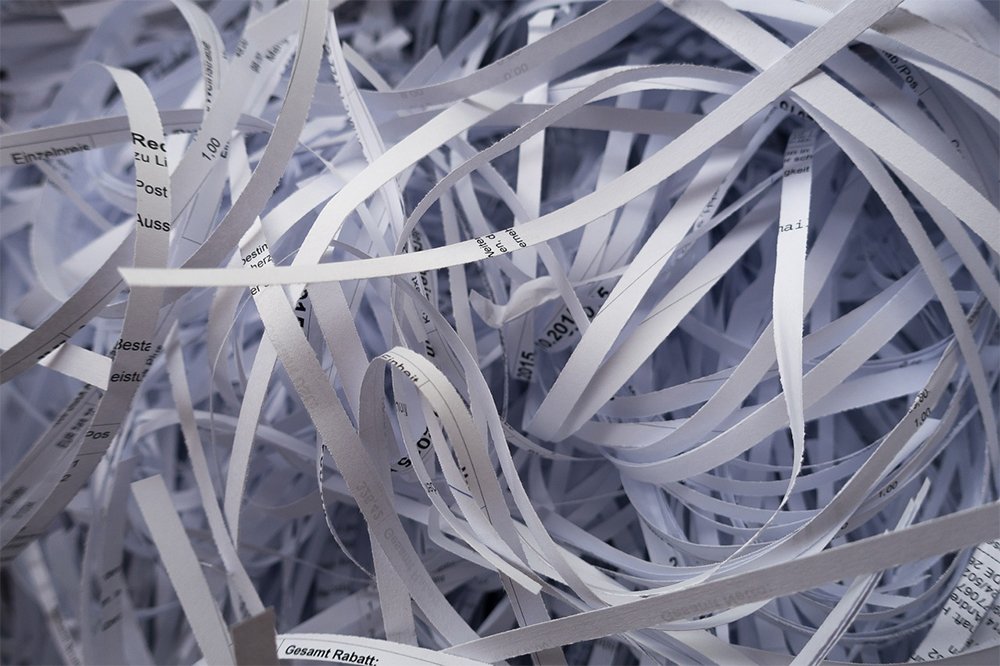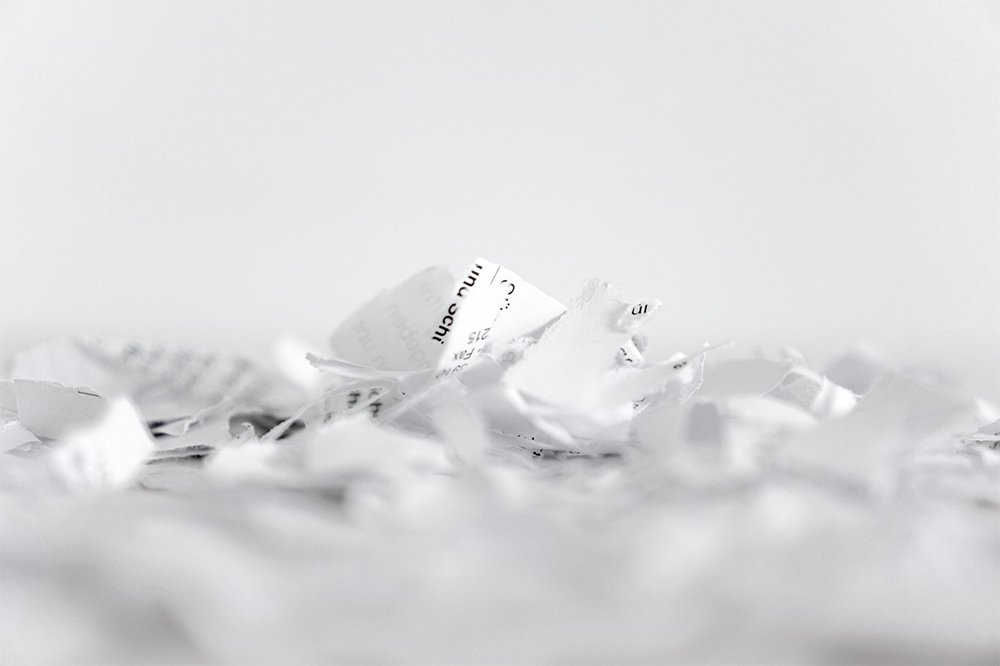
It has never been more important to have full control and understanding over the processing of your business documentation. Documents are an important part of how business operate – you need to have fast and easy access to all of the information you need to do your job. But it is also important not to simply keep a physical copy of every document you ever receive or print. Aside from the expense of storing a huge collection of documentation, having a large physical archive can present significant security risks.
It is necessary, then, to dispose of your documentation in a controlled and managed way. This needs to be safe from a security perspective but also environmentally friendly. The majority of businesses choose to periodically shred their documents – however, some are concerned that doing so is actually the wrong thing to do. This is typically due to myths and misconceptions about the practice, and how it relates to modern law and business practice.
“Specialist companies can provide scanning for multiple document types via production scanners and management software such as Kodak Alaris. In addition, leading-edge bureau production software allows cross-system compatibility with a number of document management systems, together with office applications. I.e. Microsoft, SAP & SAGE.
High volume production document scanning or scan-on-demand options are available for different applications, each with their own cost benefits. The latest generation Kodak Alaris production scanners create high definition document scans, without loss of detail or quality. In data sensitive scenarios, specialist on-site teams can be engaged to move equipment to your premises to scan such records.” Images-On-Line
Here are some of the most commonly heard misconceptions on the issue of document shredding. We examine them and reveal the truth.
 Myth: Shredding means losing information
Myth: Shredding means losing information
Truth: Technology ensures you don’t need to lose anything
Businesses can be put off the idea of shredding their documents because they believe that doing so means losing access to that information. For example, they may have received only a paper copy of an invoice and feel the need to keep that physical copy on file. Inevitably there are some cases where this is true, but in the vast majority of examples it is actually possible to scan those documents and save them on your server (or to the cloud).
Advancing technology around document shredding mean that this is now easy and affordable – it’s something that any business can do easily.
Myth: Shredding is too time consuming for a small business
Truth: Shredding services are extremely fast and efficient
For small businesses it may look daunting to see their huge archive of physical documentation and imagine how time consuming it would be to sit at a shredder, slowly feeding in paper. This can lead to them putting it off entirely, and then the task becomes larger and larger until it would simply take too long to have anyone do it.
For those businesses it is good news that you can outsource to fast and efficient shredding services. This quickly gets the job done and can provide your company with real peace of mind this process has been carried out correctly.
Myth: Throwing documents away is fine
Truth: Disposed of intact documents is very risky
There are still organisations that believe that it is not necessary to shred documentation – that paper can simply be put into a rubbish bag and thrown away. The logic here is that the documents will simply end up in a landfill.
However, it is important to note that criminals will go to extreme lengths to get hold of data perceived to be valuable. It is common for criminals to steal bags of paper documents found in rubbish piles.
Myth: If security is good, shredding isn’t required
Truth: Shredding is the only way to feel completely secure
A good reason to get into the right practice of shredding documents is that it helps to keep private data secure – it stops potentially valuable information from falling into the wrong hands. However, many organisations want to believe that their security is very good and that their team is completely trustworthy.
While we would all like this to be true, it can never be guaranteed. As new regulations such as the General Data Protection Regulation (GDPR) have come into force, it has never been more important to be taking full care of personal data. Shredding physical documents ensure that this data can’t be misused.
Myth: Recycling is better than shredding
Truth: Recycling and shredding are not mutually exclusive
Many businesses that are environmentally conscious think: shouldn’t paper simply be recycled? The answer is yes, but that doesn’t mean that it shouldn’t be shredded first. You can have the documents shredded and then recycled to ensure that you are doing the right things from an environmental perspective, but also keeping your data secure.







